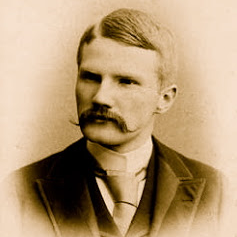Presidential Address
European History and American Scholarship
In Memoriam
From the American Historical Review 42:4 (July 1937)
Charles Homer Haskins (December 21, 1870–May 14, 1937) died in Cambridge, Massachusetts, on May 14. He was born at Meadville, Pennsylvania, on December 21, 1870, was graduated in 1887, at the age of seventeen, from the Johns Hopkins University, received the degree of PhD in 1890, and was instructor in history there in 1889-1890. From 1890 to 1902 he was successively instructor in history, assistant professor, professor of institutional history, and professor of European history in the University of Wisconsin. Coming to Harvard in 1902 as professor, he was made Gurney Professor of History and Political Science in 1912, from that year until 1928 was the first holder of the Henry Charles Lea professorship of medieval history, and from 1908 to 1924 was dean of the Graduate School of Arts and Sciences. In 1922 Professor Haskins was president of the American Historical Association, in 1926–1927 president of the Mediaeval Academy of America, and from 1920 to 1926 chairman of the American Council of Learned Societies. In 1918–1919 he served as chief of the Division of Western Europe in the American Commission to Negotiate Peace and was the American member of the Commission on Belgium and Danish Affairs and of the Special Commission on Alsace-Lorraine and the Saar Valley at the Paris Peace Conference in 1919. He received honorary degrees from the universities of Wisconsin, Harvard, Manchester, Strassburg, Padua, Paris, Caen, and Louvain. Professor Haskins was a fellow of the American Academy of Arts and Sciences, member of the Massachusetts Historical Society, of the academies of Barcelona, Rouen, and Caen, and of the Société des antiquaires de Normandie, corresponding member of the Royal Historical Society, foreign associate of the lnstitut de France, associate fellow of the British Academy, commander of the Order of the Crown of Belgium, and officer of the Legion of Honor; a few weeks before his death he received notice of his election as correspondant étranger honoraire of the Société nationale des antiquaires de France. This list is an index of the universal recognition and appreciation, abroad and at home, of the great contribution to history and to the teaching of history that Professor Haskins has made, a recognition such as has seldom if ever been accorded to any other American historian. His Norman Institutions, from its publication in 1918 to the present, has been accepted as the standard work on its subject; the masterly survey of the development of European culture in his Renaissance· of the Twelfth Century at once took its place as an indispensable help to all students of medieval history, as did the series of brilliant papers collected in his volumes on Mediaeval Science and Mediaeval Culture·; while his Lowell Lectures on The Normans in European History show his genius in adapting the results of profound scholarship to the general reader or hearer. The same versatility marked his teaching. His real forte was the guidance of advanced historical research, yet few could equal him in the power to hold and to interest the largest classes. But great as these achievements are, the host of those who were privileged to know Professor Haskins as teacher or colleague or friend are likely first to think of something else: the keen personal interest in his students, the kindly encouragement, the ready help, the true sincerity of a great man. In speaking of Charles Gross, his friend and colleague, Professor Haskins once used these words: “A great scholar, he brought into every task the scholar’s devotion and a certain large simplicity of purpose, and his historical work was merely one expression of a deep sincerity of life and character.” He could not have painted a truer portrait of himself.
Bibliography
A history of higher education in Pennsylvania, by Charles H. Haskins and William I. Hull. Washington: Govt. Print. Off., 1902.
The Normans in European history, by Charles Homer Haskins. Boston, New York: Houghton Mifflin Company, 1915; Reprint, New York: Ungar, 1959.
Norman institutions, by Charles Homer Haskins. Cambridge: Harvard University Press, 1918; Reprint, New York: F. Ungar, 1960.
Some problems of the Peace conference, by Charles Homer Haskins and Robert Howard Lord. Cambridge: Harvard university press,1920.
Studies in the history of mediaeval science, by Charles Homer Haskins. Cambridge: Harvard university press,1924.
The Renaissance of the twelfth century. New York: Meridian Books, 1957.
The rise of universities, by Charles Homer Haskins. New York: H. Holt and company, 1923; Reprint with a new introduction by Lionel S. Lewis. New Brunswick, N.J.: Transaction Publishers, 2002.
Studies in mediaeval culture. New York: F. Ungar Pub. Co., 1958.
